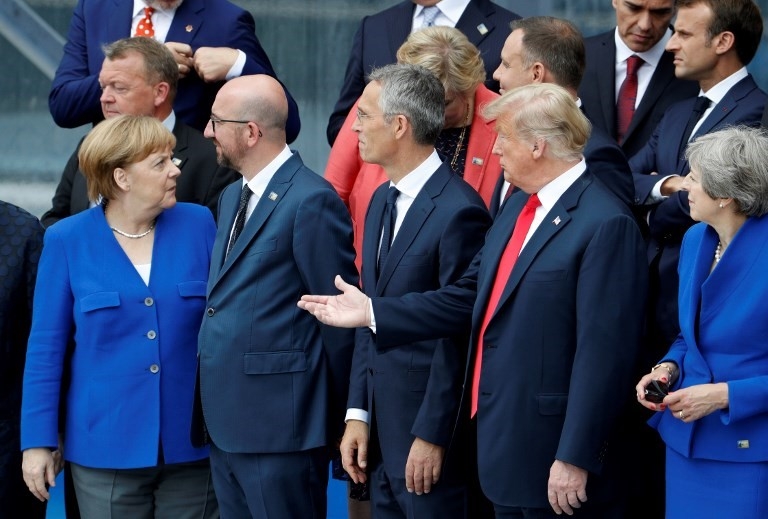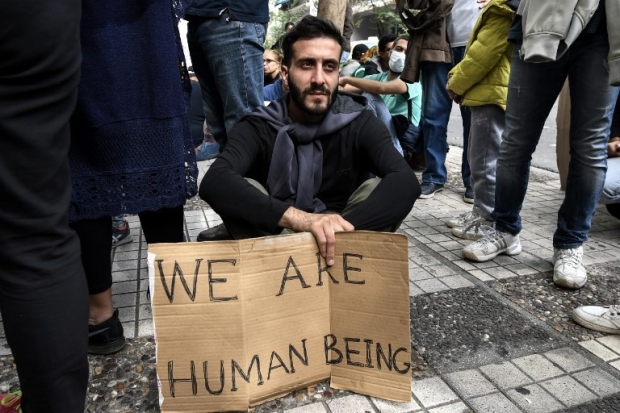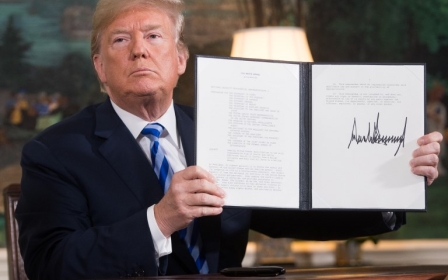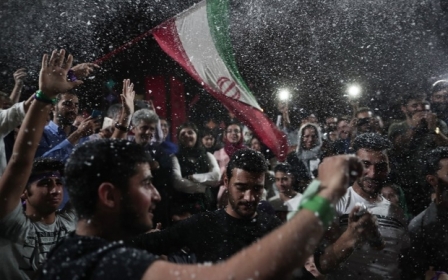Why Europe is turning against US policy on Syria and Iran

On 27 October, France and Germany joined Russia and Turkey, the two major players in Syria beside Iran, to seek a lasting solution to the Syrian conflict. The "priority" at the Istanbul summit, as French President Emmanuel Macron explained, was the situation in Idlib, the last Syrian rebel stronghold.
The joint statement of Turkish President Recep Tayyip Erdoğan, along with Russian President Vladimir Putin, German Chancellor Angela Merkel, and Macron, called for a "lasting ceasefire" in Idlib.
Why Idlib matters
The move by the EU key players, in the absence of the United States, is a clear indication that they are departing from US policy on Syria, with Washington insisting the war is not over until its conditions are met.
US National Security Advisor John Bolton said in August: "Our interests in Syria are to finish the destruction of the ISIS territorial caliphate and deal with the continuing threat of Islamic State (IS) terrorism, and to worry about the presence of Iranian militias and regular forces".
This means the US is determined to continue the war for the foreseeable future.
The Istanbul summit statement called for “free and fair elections” in the war-torn country and called for conditions to be created that would permit "for the safe and voluntary return of refugees”. The Istanbul summit was effectively about the reality dictating itself: Assad has won the war.
But why is the situation in Idlib of such great importance for Europe?
European interest in Idlib relates to their own security issues. They do not want a new flood of refugees, which could include Jihadis, pouring into Europe
Idlib is one of the 14 governorates of Syria. It is situated in northwestern Syria on the border with Turkey. According to the UN estimates some three million people live in Idlib today, many of whom were forced to flee their homes in other provinces.
Linda Tom, a Damascus-based spokeswoman for OCHA, the UN’s emergency aid coordination body, says as many as 800,000 people could be forced to flee in the event of an attack on Idlib, an increase of 100,000 from previous UN estimates.
Idlib is already a humanitarian catastrophe, home to vast camps of displaced people enduring brutal poverty. More than 1.6 million people in the province rely on food assistance, according to the World Health Organisation.
To put it simply, European interest in Idlib relates to their own security issues. They do not want a new flood of refugees, which could include militant fighters, pouring into Europe. An all-out war in Idlib could trigger another refugee crisis, likely followed by another wave of terrorist attacks in Europe.
The Syria-Iran link
A report published by the Pew Research Center maintains that, as of January 2018, about one million Syrians have moved to Europe as asylum seekers or refugees since the conflict began, according to asylum seeker data from Eurostat, and UNHCR data on refugee resettlement. More than 500,000 Syrians moved to Germany and applied for asylum between 2011 and 2017.
What links the Syrian crisis and the Iran nuclear deal? European leaders have repeatedly noted that their unwavering support of the Iran nuclear deal, resulting in their head-on clash with the US, is first and foremost about the security of Europe.
If Iran, as a result of sanctions, descended into chaos, no new regime could fill the vacuum of power. In the end Iran would become a failed state
In May, Federica Mogherini, the EU's foreign policy chief, said: "For us this is not about an economic interest, this is about a security interest for the European Union - because in the absence of the nuclear deal with Iran, we believe the security of the region and of Europe would be at stake." She stressed EU unity on the issue.
The argument behind this viewpoint is very similar to why Europeans view peace in Syria an issue of security interest.
No regime change in Tehran
Their argument goes rather like this: the intention of the current US administration, by imposing "maximum pressure" and the "toughest sanctions ever" on Iran, is to sow chaos and provoke the Iranian people to revolt against the government. The current architects of US policy towards Iran, Secretary of State Mike Pompeo and Bolton, before entering the White House, conspicuously advocated "regime change" in Iran.
However, there is no realistic alternative to the current system in Iran. If Iran, as a result of sanctions, descended into chaos, no new regime could fill the vacuum of power. In the end Iran would become a failed state. In such an eventuality a huge area of failed states stretching from Afghanistan to Syria would destabilise the whole region by becoming a giant base for international and regional terrorist organisations.
Iran could also become home for organised crime, and a major route for drug trafficking between Afghanistan and the West through Turkey. Finally chaos and civil war could spill over into neighbouring countries and destabilise Turkey and Iraq.
Heshmatollah Falahatpisheh, the new head of parliament’s influential national security and foreign policy commission and a rising star in Iran’s foreign policy apparatus, who has proposed an unprecedented paradigm shift in Iran’s foreign policy, views the European position as follows: "European countries have noticed that [the aftermath of the] destabilising developments [in the region] could hit Europe’s borders.…Europeans consider Iran as the island of stability in the region.…They know that pursuing stabilising policies in the region is to their benefit.…They seriously want to cooperate with Iran [to salvage the nuclear deal]. However, it is not clear to what extent they possess operational capabilities [to avert US destabilising policies]."
Europe’s push for stability in the region, in opposition to US policy, is partly rooted in humanitarian concern but even more strongly rooted in the goal of avoiding more chaos spilling over into Europe.
- Shahir Shahidsaless is an Iranian-Canadian political analyst and freelance journalist writing about Iranian domestic and foreign affairs, the Middle East, and the US foreign policy in the region. He is the co-author of Iran and the United States: An Insider’s View on the Failed Past and the Road to Peace. He is a contributor to several websites with a focus on the Middle East as well as the Huffington Post. He also regularly writes for BBC Persian. He tweets @SShahidsaless.
The views expressed in this article belong to the author and do not necessarily reflect the editorial policy of Middle East Eye.
Photo: (LtoR) German Chancellor Angela Merkel, Belgium's Prime Minister Charles Michel, NATO Secretary General Jens Stoltenberg, US President Donald Trump, Britain's Prime Minister Theresa May, Spain's Prime Minister Pedro Sanchez and French President Emmanuel Macron attend the opening ceremony of the NATO summit, at the NATO headquarters in Brussels, on 11 July, 2018 (AFP)
Middle East Eye propose une couverture et une analyse indépendantes et incomparables du Moyen-Orient, de l’Afrique du Nord et d’autres régions du monde. Pour en savoir plus sur la reprise de ce contenu et les frais qui s’appliquent, veuillez remplir ce formulaire [en anglais]. Pour en savoir plus sur MEE, cliquez ici [en anglais].






